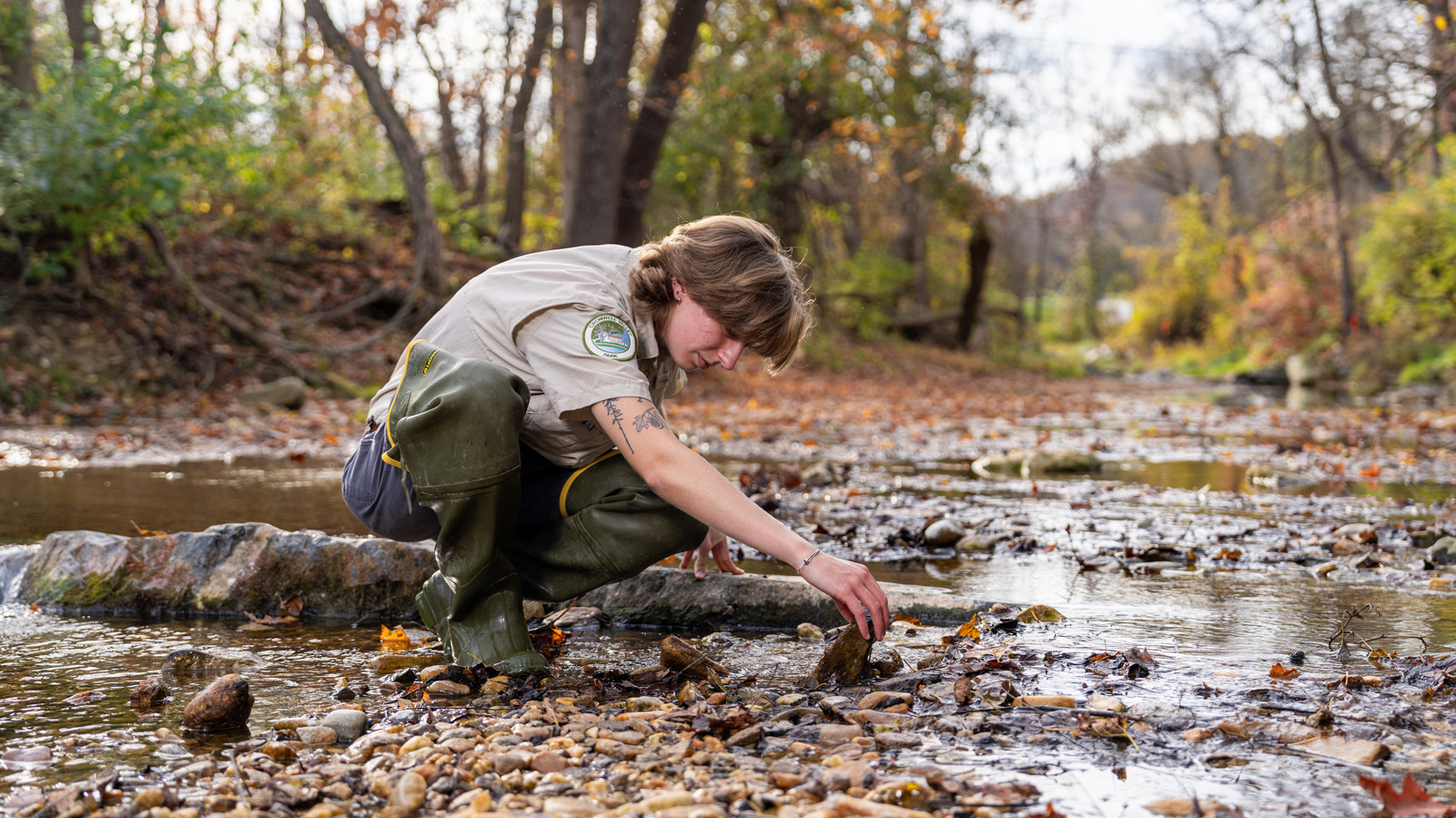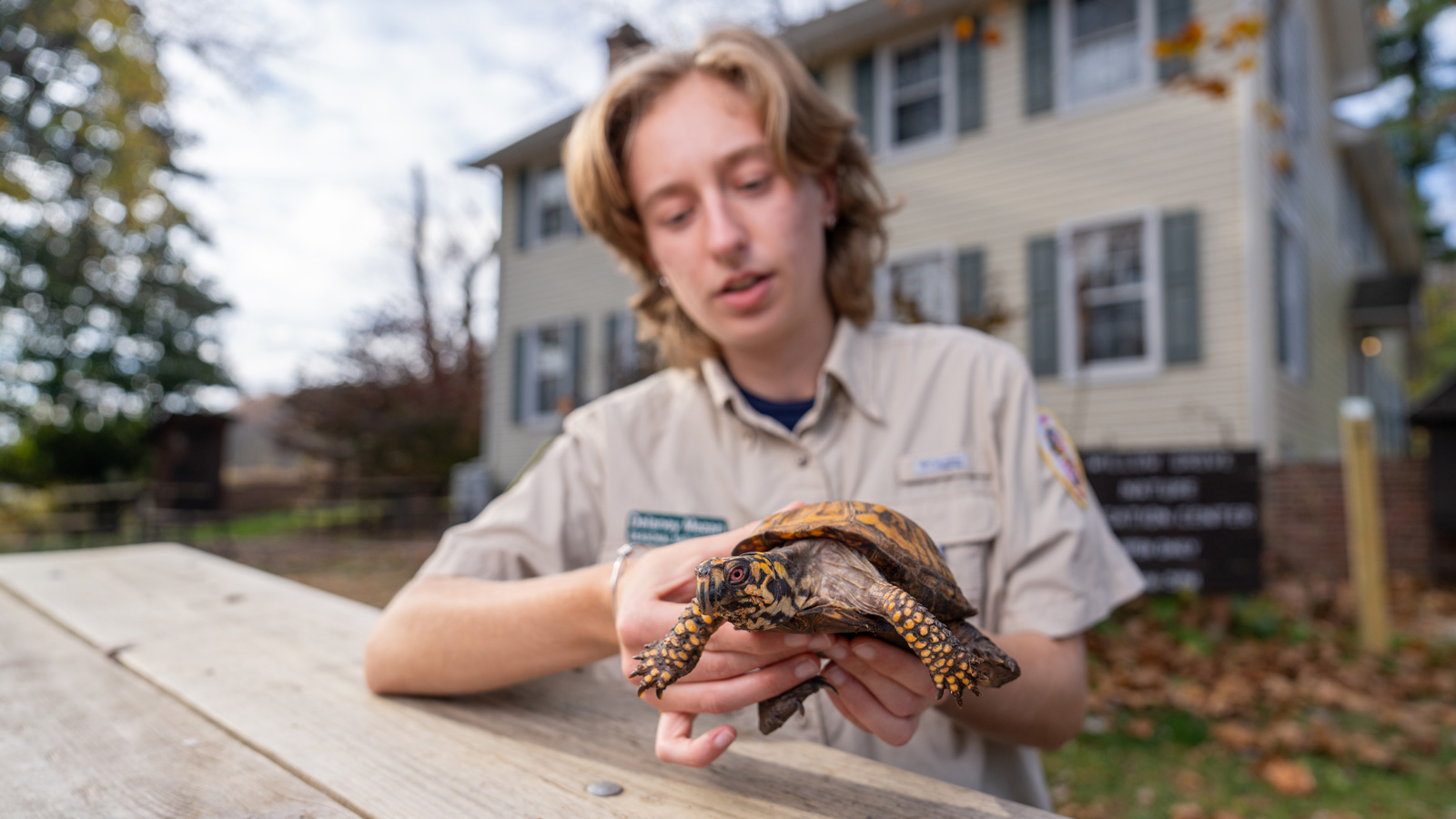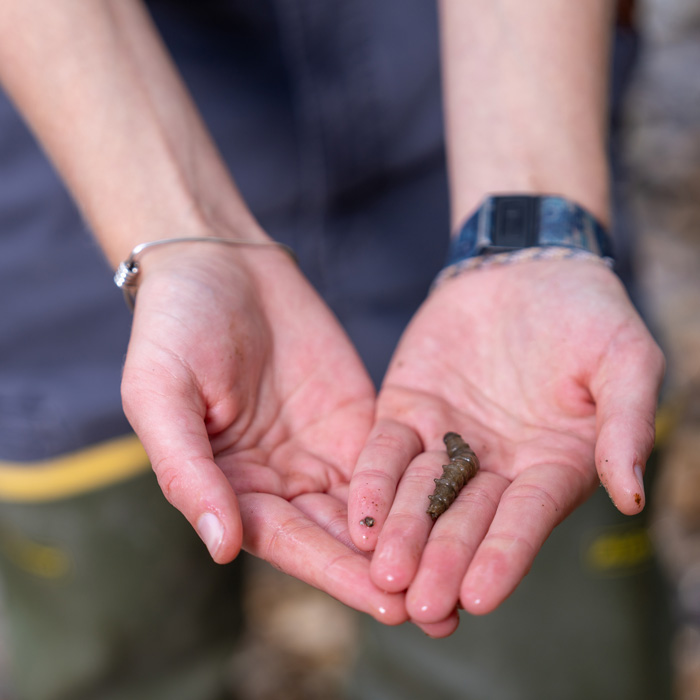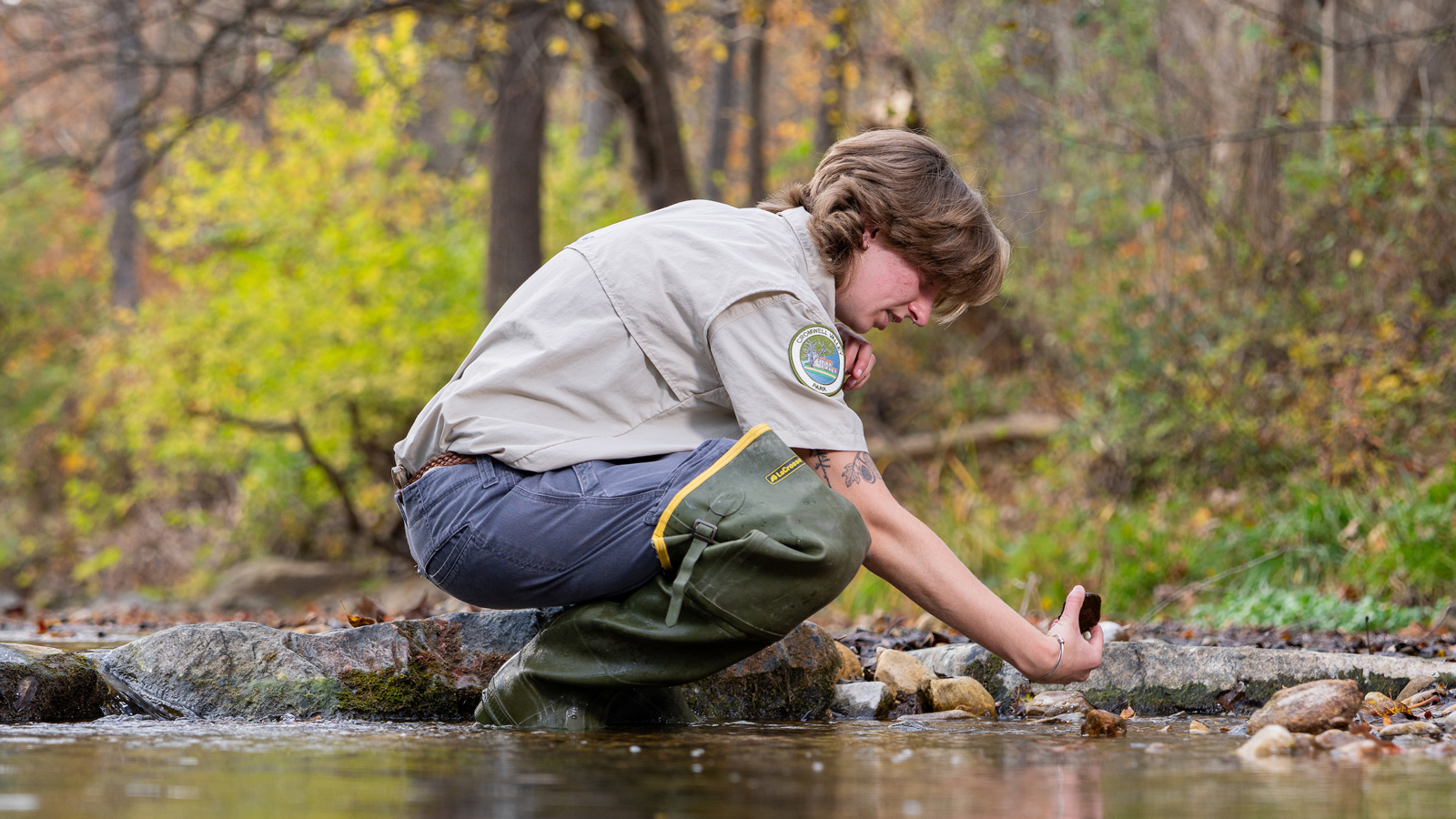Research
Doing research to help restore coastal ecosystems
Senior Delaney Mezan treks to Maryland’s Eastern Shore to study salt marsh restoration
Delaney Mezan grew up in Perryman, a small community located on a peninsula in Harford County, Maryland.
Her family had a house on the Bush River, and it was there she would turn to the water and the nature surrounding it to clear her head.
And while the bay area has always been a passion, she never saw it as a career. That was until she got to Towson University and saw the Fisher College of Science & Mathematics offered an environmental science major.
After taking a few of the classes, it was pretty evident she was meant to be a scientist.
“Nature has always been a passion of mine, but I never thought I could make a career out of it,” Mezan says. “I struggled with math and science in high school and now I’m doing statistic work in my free time.
“I switched my major twice before deciding on environmental science. The other majors I liked what I was learning, but the careers didn’t appeal to me. But with environmental science, I feel like I could be happy doing any job in that field.”

Since coming to TU, Mezan has tried to find opportunities to work in the field. She has been a naturalist
at Cromwell Valley State Park, where she teaches children about nature.
As she moved forward in her education, Mezan grew interested in getting research experience.
That’s where she came across assistant professor Alice Besterman, whose lab conducts both applied and fundamental research on coastal ecosystems,
their resilience and vulnerability to climate change, and on the animals which use
those systems.
She’s been working with Besterman for more than a year, studying coastal ecosystems—one of the main reasons Mezan joined the environmental science program.
“I am incredibly lucky Delaney found me early in my career at TU, she is one of the brightest and most self-motivated students I have worked with,” Besterman says. “Her commitment to do the best science possible while also improving and protecting ecosystems is inspiring.
“It has been a privilege to work with her and I am looking forward to continuing our work.”
And Mezan must like doing the research, because it’s a trek. During the academic year, she took several trips to the Maryland Ornithological Society’s Irish Grove Sanctuary, which is more than three hours away from campus, near Crisfield, Maryland, on the Eastern Shore.
Delaney's commitment to do the best science possible while also improving and protecting ecosystems is inspiring. It has been a privilege to work with her and I am looking forward to continuing our work.
Assistant professor, Alice Besterman, Ph.D.
There she is studying salt marshes and how the rising sea levels are affecting the habitat for animals and vegetation. There is also a chance that salt marshes will be washed away by rising sea levels, and that will influence how the shoreline is protected.
This work is motivated by the recognition of the critical ecosystem services salt marshes provide, including coastal defense for human communities, water quality improvements, nursery habitats for fisheries, and habitat for vulnerable wildlife, such as the saltmarsh sparrow
Mezan studies the salt marsh’s ecology in relation to restoration strategies. For the past year, she has been examining the relationship between hydrology, vegetation and soil organic matter to help salt marshes establish long-term resilience against sea level rise. The project has partnerships with the U.S. Fish and Wildlife Service, Audubon Mid-Atlantic Region and Marshes for Tomorrow. The research was also supported by a competitive $5,000 Summer Research grant throught Towson University.



As someone whose core memories involve the Chesapeake Bay, Mezan says it’s exciting to do research on a way to help protect its ecosystem.
“I like to feel like I'm making a difference; that's why I came into my major,” Mezan says. “And there is nothing like a salt marsh. It's hot. It's buggy. You’ve got a rising tide…it's a lot. The field house I stay in has no air conditioning, no potable water…it's very ‘struggle central.’ And I just love it.”
She will graduate this month and serve as a banner carrier for the Towson University Honors College. But she’s not done with TU. Mezan will return for her master’s degree in environmental science through the program's accelerated BS-to-MS program. She will also continue her research involving Maryland’s salt marshes.
She already has a thesis subject too, thanks to working with Besterman, which will improve the fundamental understanding of how salt marsh ecosystems respond to dynamic flooding regimes.